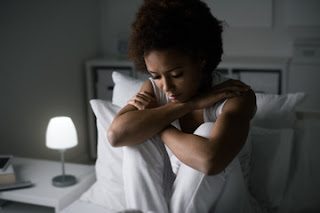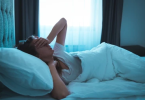When’s the last time that you didn’t get enough sleep? Can you remember how you felt the next morning? If you’re like many people, that lack of sleep impacts you on many fronts. You may feel tired physically. Your brain may feel foggy, and your reflexes, including lifesaving ones in situations like driving, less than ideal, too. But on those days after sleeping little, do you feel alone, as if no one else is experiencing what you are?
Unfortunately you’re not alone. Would you be surprised that over one-third of all Americans rate their sleep pretty badly? It’s true. Although most in health care fields recommend about 8 hours of sleep, in reality most adults get less than that by about 25 minutes. Over a week, that can equal about 3 fewer hours than necessary. Americans try to make that up, of course, by sleeping longer on the weekends or taking naps. We’re waking up feeling sluggish—week after week. Even worse is that for up to 70 million Americans, their sleep issues aren’t occasional disruptions, but full-fledged sleep disorders.
That weekly lack of sleep has a recognizable effect on our day-to-day interactions: Nearly half of Americans also say that those nights of tossing and turning make a direct affect on their activities the next day. And that bad sleep has more than short-term consequences—it can actually lower our life expectancy and increase our weight gain.
Plenty of people discount the lack of sleep and believe, incorrectly, that they can simply “train” their bodies to function well on less sleep—but that’s not true. Or they’re using stimulants like those in caffeine to help—maybe with conscious thought that they will combat sleepiness, or maybe not. (Interestingly, though, a good mattress is one way to help improve sleep.)
Of course, one of the main factors affecting our sleep is our reliance on smart devices. We use them right before we go to bed, and we turn them on right when we wake up. And instead of sleeping in our bedrooms, we’re also watching television shows or movies—again, more screens, more stimulus before we’re trying to sleep.
So what can people do in order to remedy that bad sleep and try to get back to a normal routine that improves health? Cutting screens at night is one good step. Establishing a routine and practicing healthy sleep hygiene is another. This graphic offers more advice.
Click to Enlarge Image
Please follow and like us:










